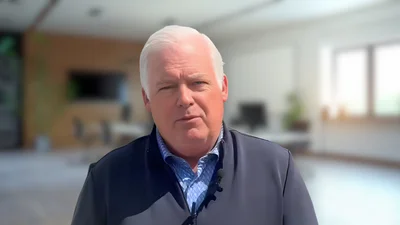Beginning New Year’s Day it became a lot more expensive for Illinoisans to trade in a car and this has auto dealers, particularly in border areas, bracing for lost business.
“Maybe a tax like this would make sense in someplace like Hawaii, where there aren’t any neighboring states. But for a state like Illinois in the middle of the country it makes no sense at all,” said Jamie Auffenberg, who owns auto dealerships in Belleville and O’Fallon.
Here’s how the new tax works.
Let’s say you’re trading in a car valued at $20,000 to buy a new vehicle for $35,000. Right now, you’d pay sales tax on the difference between the trade-in and the new car: $15,000. Applying Illinois’ average state and local sales tax rate of 8.74%, the sales tax on this deal is $1,311.
The sales tax bill on that same transaction will go up nearly $900 next year.
Under the new law, a maximum of $10,000 in trade-in value will be exempt from the sales tax. So, in our example, instead of paying sales tax on $15,000, you’d have to pay sales tax on $25,000.
It’s a basic law of economics that when something becomes more expensive, demand for it goes down.
So, under this new tax regime, fewer cars will likely be sold. This means auto dealers will earn less, employ fewer people and pay less in income taxes.
“The most frustrating thing about this is that Illinois keeps raising taxes and it doesn’t solve anything,” Auffenberg said. “The state keeps raising taxes and raising taxes and the state is in worse financial shape today than it was 10 years ago. It’s time for state government to look for places to cut.”
The new tax is expected to raise $60 million for Gov. J.B. Pritzker’s infrastructure plan. But one thing that projection doesn’t take into account is how innovative car buyers may be in avoiding the tax.
Illinois once taxed car leases at a much higher rate than neighboring states, Auffenberg noted.
“In our area, 30 to 40 percent of the people work in Missouri. What we witnessed was people registering their cars under their business address in Missouri to avoid paying the tax in Illinois. People will do all sorts of things to avoid paying an extra $1,000 or $2,000 in taxes. I expect the same thing will happen with this tax. It may not happen as much in someplace like Springfield but in border areas, it will take place.”
Joe McMahon. director of government affairs of the Illinois Car Dealers Association, said the tax is fundamentally unfair.
“You already paid sales tax when you bought the vehicle the first time around,” he said. “And now they want to tax you for it again. That’s not right.”
The trade-in tax is coupled with several other vehicle-oriented taxes that also were approved by the Legislature.
Residents won’t just pay more to sell their car. They’ll also pay more to drive it, park it and get a license plate renewal sticker.
The registration fee for regular passenger vehicles jumped to $151 from $101 on Jan. 1, 2020. The Illinois motor fuel tax rose from 19 cents to 38 cents per gallon on July 1, making the Land of Lincoln’s gasoline tax No. 3 in the nation.
And lawmakers also imposed a new tax on private parking that also went into effect this week.
Legislative leaders agreed on the tax hikes behind closed doors and presented them to the General Assembly a day and one half before adjournment. Neither businesses nor ordinary citizens had much opportunity to weigh in on the proposal.
That’s not how democracy is supposed to work. But it’s business as usual in Illinois.
And that’s unfortunate.
– Scott Reeder is a veteran statehouse journalist and freelance reporter; ScottReeder1965@gmail.com.





 Alerts Sign-up
Alerts Sign-up